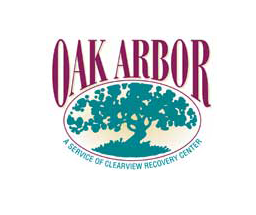4 Workplace Habits That May Indicate Depression
- By Admin
- •
- 10 Apr, 2020
- •

Depression is a mental illness that affects over 17 million adults in the United States. Roughly 7 in 100 adults suffer from a major depressive episode - a period of time marked by feelings of sadness and an inability to fully enjoy life or fulfill key life events in relationships or careers.
Depression is synonymous with sadness or a general lack of interest, but other more subtle symptoms of depression exist that you might notice when you're at work. Would you recognize symptoms of depression simply by the way you conduct work or interact with others in the workplace? Discover four workplace habits that may indicate depression.
1. Difficulty Sitting Still
If your job requires you to sit for long periods of time at a desk or other work station, you can sometimes feel a bit restless while you try to complete your tasks. However, if you are extremely restless to the point you cannot complete your tasks, you may have depression.
Depression can increase your inability to sit still and remain still while you focus on a computer screen, listen quietly during a meeting, or scrutinize important components on an assembly line. Increased agitation is common with many people that suffer from depression. If you find you are much more restless or agitated than normal, you might want to talk to a doctor.
2. Frequency in Being Late for Work
Everyone is late for work once in a while due to heavy traffic, a missed alarm, or other unusual events that put your routine behind schedule. If you notice your number of late work arrivals increase enough for your boss to point it out, you may suffer from depression.
Another symptom of depression includes changes in sleep patterns or difficulty with motivation to wake up and get ready to go to work. Depression can throw off your sleep schedule enough to make you want to sleep too much. Also, feelings of depression can make it feel nearly impossible to get out of bed, shower, and get dressed for work.
3. Aches and Pains on the Job
Certain occupations can create an occasional ache or pain. For example, you may experience a stiff neck while seated at the computer due to poor posture or the wrong kind of work chair. Or, you might pull a muscle because you lift a heavy box improperly in a warehouse. These are normal episodes that relate to your specific job task.
However, you may suddenly experience new aches and pains even though your job tasks remain the same. For example, you have a headache or feel achy muscles throughout your entire body. Stress, illness, or other factors may be enough to produce these symptoms, but depression is another possibility.
In addition to body aches and pains, depression can cause stomach and digestive trouble, decreased vision, and hypersensitivity to any kind of pain. Be sure to mention any new physical pains or changes when you discuss depression with your doctor.
4. Anger Towards Co-Workers
Many work environments are often the scene for an occasional argument or heated debate between employees. Feelings of anger and frustration with a co-worker or stressful situation are normal, but not when they consistently interfere with your ability to get along with others.
Depression can make you feel angry and irritable just as well as it can make you feel sad and empty. In fact, depression can manipulate your ability to react to everyday hassles and intensify your reactions. The result is a more intense, angry response that lasts longer than normal and damages your relationships with co-workers.
If you notice these symptoms of depression, or feel you may have depression, reach out to our caring staff for help. We at Oak Arbor are committed to helping others who may suffer from depression.





